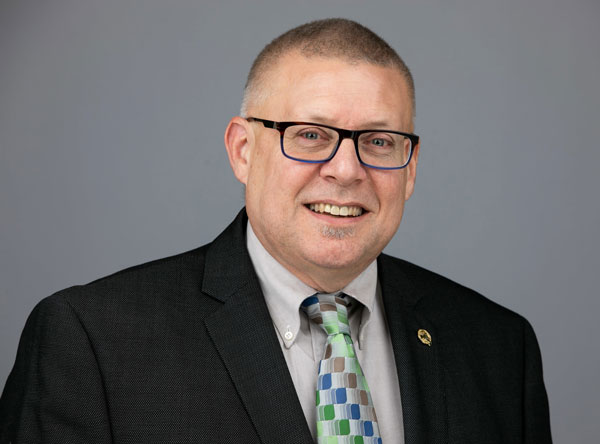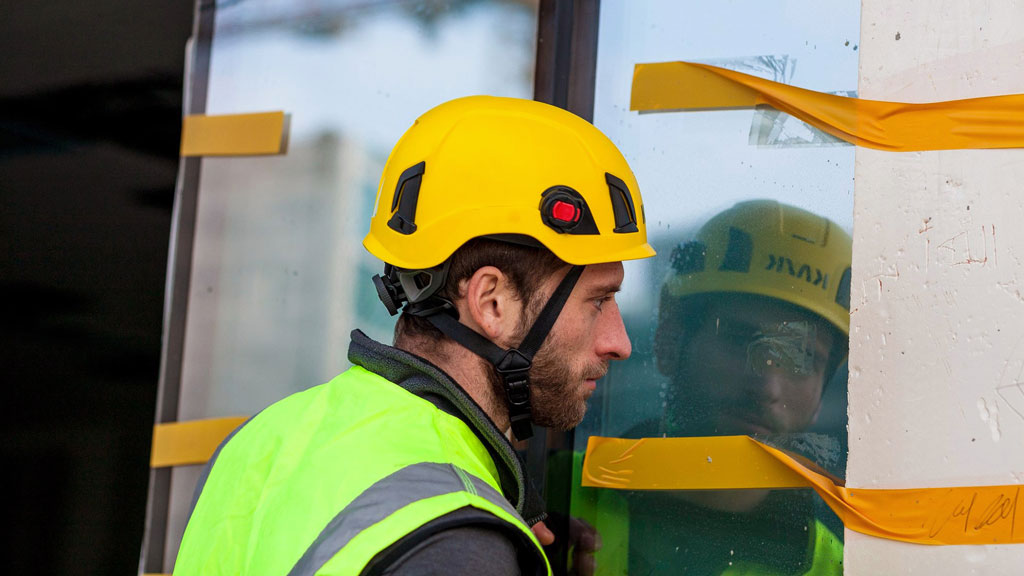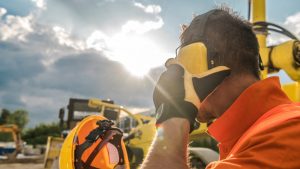The link between construction-related traumatic brain injuries (TBIs) and mental illness may well be the focus of the sector’s next big mental illness campaign suggests a prominent U.S. construction wellness researcher.
Dr. John Gaal, a semi-retired long-time Carpenters’ union advocate based in St. Louis, has previously focused on the opioid crisis and suicides in the sector.
“I see this coming up as a third rail,” said Gaal, who lost his son John Jr. to suicide in 2017 after the young athlete sustained multiple concussions playing football and soccer. “It’s really been picking up steam.”
Over the last year Gaal researched the topic in depth and participated in convening a panel of experts whose findings were published by the International Foundation of Employee Benefit Plans last fall. The report will be revised for a Canadian audience and released shortly.
The Laborers’ Health and Safety Fund of North America picked up the ball in January, publishing an article titled Supporting Workers Following a Concussion or Traumatic Brain Injury.

Gaal argues employers, workers and employer and public occupational health organizations like Ontario’s Workplace Safety and Insurance Board (WSIB) need to establish a continuum of strategies to address TBI-related mental health issues, starting from the worker recruitment stage. The next steps would be highlighting the importance of prevention of TBIs, securing immediate treatment when TBIs occur and ensuring there’s a sophisticated recovery plan for victims.
Mental illnesses related to TBIs are difficult to diagnose because they are invisible injuries, said Gaal. Among the mental illnesses that can develop are depression, PTSD, suicidal thoughts, anxiety, obsessive-compulsive disorder, substance dependencies, fatigue, confusion and pseudobulbar affect (characterized by emotional irregularities such as inappropriate laughter, anger and crying).
“Because so much of our health care focuses on the physical side of the equation, we all think there is a magic bullet to everything,” said Gaal. “You know, it takes eight weeks to mend a broken leg. People often want answers like that when it comes to anxiety and depression but it doesn’t work like that.”
Research in the past decade from the Centers for Disease Control and other sources including Dr. Angela Colantonio, a University of Toronto brain injury researcher, have chronicled the risk factors associated with work-related TBI specifically in construction.
It’s been reported that the construction industry had the most fatal and nonfatal TBIs among U.S.
workplaces, with 2,000 workers dying over eight years, representing 25 per cent of all construction fatalities. TBIs most frequently result from slips, trips and falls from various heights, sometimes caused by slick surfaces, with other causes including “struck-by” incidents involving untethered tools.
It has also been found that between 25 per cent and 50 per cent of TBIs will be followed by major depression in the first year after the event. The Laborers’ article noted rates of anxiety disorder and obsessive-compulsive disorder double after a TBI.
In the U.S., Gaal noted, the construction industry actively recruits workers from military streams or former athletes, both groups with greater exposure to head injuries. Since brain injuries tend to worsen as incidents accumulate, that means recruits from those sectors may already be more vulnerable to mental illnesses when they start the job.
Gaal and the Laborers’ argue the first tier of strategies in the sector can begin with simple tools such as a toolbox talks to prevent TBIs in the first place.
“Like any aspect of safety, you preplan your jobs,” said Gaal. “You make sure you’ve got fall apparatus that is working properly, make sure you’ve got stuff tied off. Make sure people are using the proper equipment and talk about simple issues such as surfaces.”
There is discussion of switching to better equipment – advocates are now talking about using rock-climbing-type helmets with chin straps.
“When you fall off the ladder, one of the first things to pop off is your helmet, so it doesn’t help you when you land,” said Gaal.
When there is an injury, employees and supervisors must learn to take extra precautions, remove the worker from the jobsite and look for symptoms such as irritability, light sensitivity, confusion and forgetfulness.
Carmine Tiano, director of occupational health services with the Ontario Building Trades, advocates for greater awareness of the progression of symptoms after a TBI occurs. The physical symptoms of a concussion can subside in predictable fashion but other consequences may emerge seemingly randomly at a later time.
“All of a sudden there’s depression, mood swings, anger, anxiety, fear of machinery,” he said.
Both Tiano and David Frame, director of government relations for the Ontario General Contractors Association, suggest the WSIB’s recovery programs for workers suffering from a TBI produce good results.
“If it’s determined it’s directly related to some sort of injury or traumatic injury, the WSIB has a very comprehensive program, and they updated it about 18 months or so ago,” said Frame.
There is a mandate to intervene early, address the impact of the brain injury and maximize recovery, Frame said.
A recent program upgrade administered by the WSIB is the Mild Traumatic Brain Injury Program of Care, the first line of care for injured or ill workers who have been diagnosed with a mild TBI or concussion.
Meanwhile, Gaal said he has been hearing from advocates across the country in the wake of the latest awareness efforts.
“We feel concussions and traumatic brain injuries are going to negatively impact the construction industry if we don’t get our arms around this sooner rather than later,” he said.
Follow the author on Twitter @DonWall_DCN.











If physically survived, emotional and/or psychological trauma from unhindered toxic abuse usually results in a helpless child’s brain improperly developing. If allowed to continue for a prolonged period, it can act as a starting point into a life in which the brain uncontrollably releases potentially damaging levels of inflammation-promoting stress hormones and chemicals, even in non-stressful daily routines. It’s like a form of non-physical-impact brain damage.
The lasting mental pain is very formidable yet invisibly confined to inside one’s head. It is solitarily suffered, unlike an openly visible physical disability or condition, which tends to elicit sympathy/empathy from others. It can make every day a mental ordeal, unless the turmoil is treated with some form of medicating, either prescribed or illicit.
But due to the Only If It’s In My Own Back Yard mindset, the prevailing collective attitude, however implicit or subconscious, basically follows: ‘Why should I care — my kids are alright?’ or ‘What is in it for me, the taxpayer, if I support programs for other people’s troubled families?’ The self-serving OIIIMOBY can debilitate social progress, even when social progress is most needed.
The health of all children — and not just what other parents’ children might or will cost us as future criminals or costly cases of government care, etcetera — needs to be of real importance to us all, regardless of how well our own developing children are doing. A mentally sound future should be every child’s fundamental right — along with air, water, food and shelter — especially considering the very troubled world into which they never asked to enter. Mindlessly minding our own business on such matters has long proven humanly devastating.